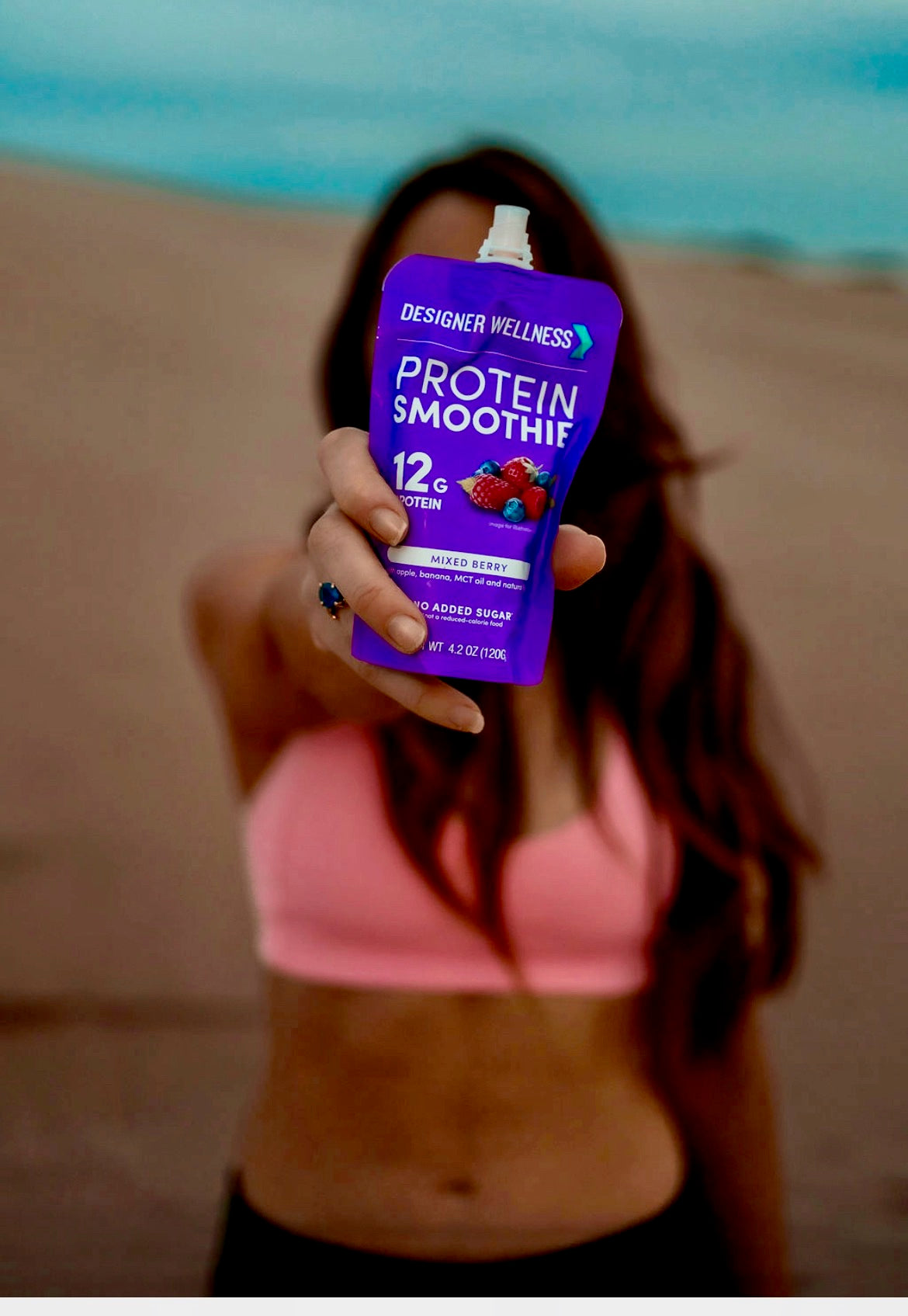The Mediterranean diet has topped the list of the healthiest diet for many years for a good reason. It has been shown to reduce the risk of
➢ heart attack, stroke, and cardiovascular death by 30%.
➢ Type 2 diabetes and gestational diabetes by 40%.
➢ atrial fibrillation by 38%
➢ Breast cancer risk by 62%
Research has also shown its benefits expand to weight management, brain health, and reducing the risk of Parkinson's disease and Alzheimer's disease. These risk reductions are attributed to the Mediterranean diet's impact on inflammation, blood sugar, and BMI.
The Mediterranean diet reflects an eating pattern of countries bordering the Mediterranean Sea before the mid-1960s when globalization (hello processing and fast food) influenced the diet. It is a plant-forward diet built around high vegetable intake and healthy fats with beans, fruits, whole grains, and minimal animal foods. Check out below for my five easy tips on incorporating the Mediterranean diet into your lifestyle.
1. Use extra-virgin olive oil as your primary source of fat.
Extra-virgin olive oil (EVOO) is high in vitamin E, carotenoids, and polyphenols, contributing to its antioxidant and anti-inflammatory properties. Try cooking your veggies in EVOO and making your salad dressings with it. You can add it to your Designer Protein shakes for an extra boost of EVOO.
2. Eat a handful of nuts a day.
Research shows walnuts, almonds, and hazelnuts are particularly beneficial in following the Mediterranean diet. You can enjoy these as whole nuts or as nut butter. Mix in your favorite nut butter with your plant-forward Designer Plant protein drink for an extra boost of healthy fat and plant-based protein.
3. Include two servings of vegetables at every meal (about 1-2 cups per meal).
Including 1-2 cups of vegetables, particularly leafy greens, will boost your intake of carotenoids, vitamins C and E, and minerals such as magnesium, iron, antioxidants, flavonoids, and calcium. It’s crucial to get in a variety since nutrient density and absorption can vary with the type of vegetable and preparation.
Try adding leafy greens to your Designer Plant or Designer Soy, a plant-forward smoothie. Add veggies to frittatas, soups, beans, sauces, and stir-fries.
Garlic is another super Mediterranean vegetable that pairs nicely in all vegetable-based meals. The sulfur compounds in garlic that create its pungent odor are also responsible for its health benefits, including anticancer, antioxidant, and anti-inflammatory effects. To maximize garlic's benefits, crush or chop the garlic and allow it to sit for 10 to 15 minutes before adding it to your dish.
4. Choose wholegrain high fiber grains only.
When it comes to grains pick, whole, unprocessed grains like barley, faro, and quinoa (really a seed). Look for grains with a minimum of 3g of fiber per serving or more: the more fiber, the better. Fiber aid in healthy weight management which promotes heart health, and it also helps remove cholesterol from the body and normalizes blood sugar, promoting heart health.
5. Go for fruits high in resveratrol.
Resveratrol is a flavonoid that may help increase good cholesterol HDL, promoting heart and vascular health. Resveratrol is best known as the super heart-healthy flavonoid found in wine. You can also find resveratrol in grapes, blueberries, cherries, cranberries, peanuts, and dark chocolate. Try adding blueberries to your next Designer Protein smoothie, or try our blueberry-containing Designer Protein Smoothie mixed berry pouches. Our Designer Plant contains organic blueberry extract pair this with a cup of blueberries and 2 Tbsp of peanut butter for a high resveratrol smoothie!
6. Eat less than one serving per week of red meat, sausage, deli meat, ham, or other processed meat.
Eating less red and processed meats helps reduce inflammatory saturated fat sources. Focus on getting your quality proteins from lean protein sources such as beans, legumes, edamame, Designer Proteins, Designer Smoothie, fish, poultry, seafood, tofu, tempeh, yogurt, and eggs.
7. Consume fish two times a week.
Fatty fish is rich in healthy fats, which is the base of the Mediterranean diet. Focus on fish such as salmon, halibut, sardines, mackerel, tuna, and herring. These fish are high in omega-3 fatty acids, which have been shown to reduce inflammation and improve cholesterol. If you’re not big on fish, you can try adding seaweed and algae oil into your diet. Both seaweed and algae oil are easy to add to smoothies, oatmeal, or chia pudding if you’re skipping fish for dinner.
Heart Disease is the number one killer for both men and women. Thankfully your risk can be reduced by following a healthy lifestyle like the Mediterranean diet. Keep these staples listed below to keep heart-healthy Mediterranean-inspired eating simple. And check out more healthy eating tips at the Designer Wellness blog!
Mediterranean Diet Staples
- Veggies (fresh or frozen)
- Leafy greens (fresh or frozen) - Mixed Berry Designer Smoothie
- Blueberries (fresh or frozen)
- Salmon - Designer Plant
- Walnuts
- Almonds
- Peanut butter
- Lentils
- Hummus
- Chickpeas
- Greek yogurt plain
By Ginger Cochran, MS, RDN, CDCES, CEP-ACSM
Sources:
Today’s Dietitian February 2021 Issue Heart Health & COVID-19 Vol. 23, No. 2, P. 18 Today’s Dietitian May 2019 Issue The Mediterranean Diet Vol. 21, No. 5, P. 18 Today's Dietitian May 2016 Issue Key Ingredients of the Mediterranean Diet — The Nutritious Sum of Delicious Parts Vol. 18 No. 5 P. 28




